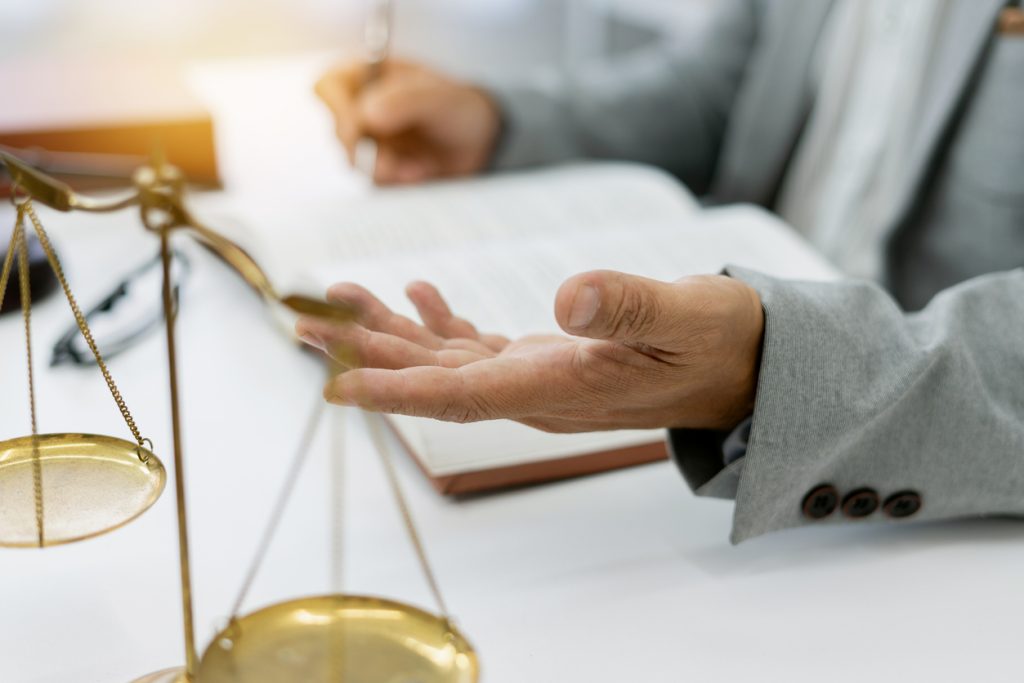A deposition is a crucial step in the legal process following car accidents in Tampa. This formal questioning can shape the outcome of the litigation. After a deposition, the parties involved will typically review the statements made, assess their implications on the case, and prepare for potential negotiations or trial proceedings.
In Tampa, car accident cases often involve extensive documentation and witness accounts. Once the deposition is complete, attorneys will analyze the information gathered to strengthen their arguments and develop strategies. The insights gained during this process can significantly influence settlement offers or the decision to move forward to trial.
Understanding the steps that follow a deposition can provide clarity on the progression of a car accident case. This knowledge is essential for anyone navigating the complexities of the legal system after an accident in Tampa.
Overview of the Deposition Process in Car Accident Cases
The deposition process in car accident cases serves as a critical phase where parties gather detailed information under oath. Understanding its purpose, key players, and the types of questions asked can aid in navigating this procedure effectively.
Purpose of a Deposition
The primary purpose of a deposition in car accident cases is to obtain testimony from witnesses and parties involved. This step helps to gather facts, clarify issues, and establish a solid foundation for the case.
Depositions can reveal crucial information regarding the accident details, including the events leading up to the incident and the extent of injuries sustained.
This process also allows attorneys to assess the strength of their case and to prepare for trial by understanding the other party's position.
Key Participants During a Deposition
Several key participants are involved in a deposition. These typically include:
• Witnesses: Individuals providing testimony about the accident.
• Plaintiff's Attorney: Represents the injured party and asks questions to gather information.
• Defendant's Attorney: Represents the accused party and cross-examines witnesses.
Additionally, a court reporter is present to transcribe the proceedings. Each participant plays a crucial role in ensuring the deposition is thorough and accurately recorded.
Understanding the roles can help in better preparation and expectations during the deposition.
Typical Questions Asked
The questions asked during a deposition usually aim to clarify the events of the accident. Common questions may include:
• What were the weather conditions at the time?
• Can you describe how the accident occurred?
• What were your actions leading up to the incident?
These inquiries might also address the injuries sustained and medical treatments received.
Questions can vary based on the specifics of the case, but they often focus on details that illuminate the facts surrounding the accident. Each response can significantly influence the case's outcome.
Post-Deposition Steps
After a deposition, several key steps follow to ensure that the testimony is properly processed and utilized in the case. From transcription to strategic legal discussions, these steps are crucial in preparing for the next phases of litigation.
Transcription of Testimony
Following the deposition, the recorded testimony is transcribed. A professional transcriptionist captures every spoken word, creating an official written record.
This document is essential for both parties as it serves as a reference during the case.
Typically, the transcription is completed within a few weeks. The attorney will receive a copy to review for accuracy and completeness. Any discrepancies may need to be highlighted for corrections.
The transcription can also aid in forming the basis for legal strategy moving forward.
Review and Corrections
Once the transcription is received, the attorney and client must meticulously review the document for any inaccuracies.
Identifying errors is critical, as these can affect the case significantly.
Common corrections include misrepresented statements or technical errors in the transcription. The attorney will collaborate with the transcription service to address these issues.
This stage also allows for reflections on how the deposition's content aligns with the overall legal strategy.
The final approved transcript will be crucial for any upcoming court hearings or settlement negotiations.
Attorney Analysis
The attorney conducts a thorough analysis of the deposition testimony to assess its implications.
They evaluate the strengths and weaknesses evident in the statements provided.
This analysis helps the attorney in shaping their legal strategy and identifying key points that may support their case.
They may also identify areas that need further exploration or additional evidence to reinforce claims made during the deposition.
This step ensures that the attorney is well-prepared for subsequent negotiations or court proceedings.
Settlement Discussions
Following the analysis, the possibility of settlement discussions often arises.
The deposition may provide insights that could facilitate negotiations between the parties.
If both sides recognize the strengths and weaknesses of their cases, they may opt for a resolution outside of court.
Settlement discussions hinge on the evidence presented during the deposition, making the accuracy of the transcript all the more important.
Engaging in discussions can save time and resources, allowing both parties to avoid a prolonged litigation process.
Potential Outcomes After a Deposition
After a deposition in a Tampa car accident case, various legal outcomes may arise. The actions following a deposition often involve the advancement of the case toward trial, the initiation of settlement negotiations, or the potential dismissal of claims based on the information gathered.
Case Advancement to Trial
If a deposition uncovers significant evidence, the case may progress to trial. The information revealed can strengthen a party's position, persuading them to pursue the matter in court. Legal teams will analyze the deposition transcripts for inconsistencies or corroborative statements.
When trial is forthcoming, both sides prepare their strategies based on deposition insights. Witnesses may be called to testify, and evidence will be presented. The trial’s outcome will depend heavily on the deposition content, as well as how effectively it is argued in court.
Settlement Negotiations
Depositions frequently lead to renewed settlement negotiations. If parties understand the strengths and weaknesses of their positions, they may wish to resolve matters outside of court. This could happen if the deposition reveals potential liabilities.
Negotiations can result in settlements that are mutually beneficial. Legal representatives will assess the deposition findings to determine a reasonable settlement offer. Engaging in these discussions can save time, costs, and emotional strain associated with a trial.
Dismissal of Claims
In some cases, a deposition may provide evidence that leads to the dismissal of claims. If one party's testimony undermines the foundation of the case, the opposing party may file a motion for dismissal. This scenario occurs when vital facts do not support the claims made.
Legal counsel will evaluate the deposition to ascertain its impact on the case. If dismissal is warranted, it can swiftly conclude litigation, minimizing further legal proceedings. Parties may also consider this an opportunity to reassess their claims or defenses based on the deposition outcomes.
Preparing for the Next Steps
After a deposition in a Tampa car accident case, several critical actions are required to advance the case effectively. These steps involve client preparation, ongoing evidence gathering, and addressing pre-trial motions.
Client Preparation
Clients must understand the upcoming phases of their case. This preparation includes discussing potential court appearances and the importance of remaining available for further questioning.
Legal counsel should provide clients with a clear overview of their case strategy, emphasizing the relevance of their deposition testimony. It's vital for clients to review their statements and remain consistent, as diverging details can affect credibility in court.
Additionally, clients should be advised on how to conduct themselves in future interactions, whether in court or during negotiations. Maintaining composure and clarity is essential.
Evidence Gathering Continued
Following the deposition, the legal team should focus on continuing to gather evidence. This can include obtaining witness statements, medical records, and accident reports.
Legal professionals must also evaluate how the gathered evidence supports the case strategy. All evidence should be meticulously documented and organized for easy reference during trial preparation.
The team may also explore further investigations if new leads emerge post-deposition. Any new evidence that strengthens the case should be readily integrated into the ongoing strategy.
Pre-Trial Motions and Hearings
Pre-trial motions can significantly impact how the case unfolds. Legal representatives should identify and prepare motions such as motions to exclude evidence or to compel further discovery.
These motions can shape the groundwork for the trial and enhance the chances of a favorable outcome. Clients should be informed about the purpose of these motions and any required actions on their part.
Throughout this process, communication with the client remains key. They should be kept updated on the progress and implications of any pre-trial decisions, ensuring they remain engaged and informed as the case moves forward.





















